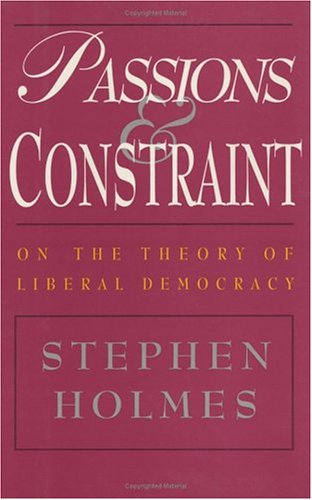A collection of essays on the core values of liberalism which challenges assumptions about liberal theory. By placing it into its original historical context, this text presents an interconnected argument meant to fundamentally change the conception of liberalism. According to Holmes, three elements of classical liberal theory are commonly used to attack contemporary liberalism as antagonistic to genuine democracy and the welfare state: constitutional constraints on majority rule; the identification of individual freedom with an absence of government involvement; and a strong emphasis on the principle of self-interest. Holmes argues that the aspirations of liberal democracy - including individual liberty, the equal dignity of citizens, and a tolerance for diversity - are best understood in relation to two central themes of classical liberal theory: the psychological motivations of individuals and the necessary constraint on individual passions provided by institutions.
By restricting the arbitrary powers of government officials, Holmes states, a liberal constitution can increase the state's capacity to focus on specific problems and mobilize collective resources for common purposes.
- ISBN10 0226349683
- ISBN13 9780226349688
- Publish Date 1 June 1995
- Publish Status Out of Stock
- Out of Print 15 June 2015
- Publish Country US
- Imprint University of Chicago Press
- Edition 2nd ed.
- Format Hardcover
- Pages 384
- Language English
